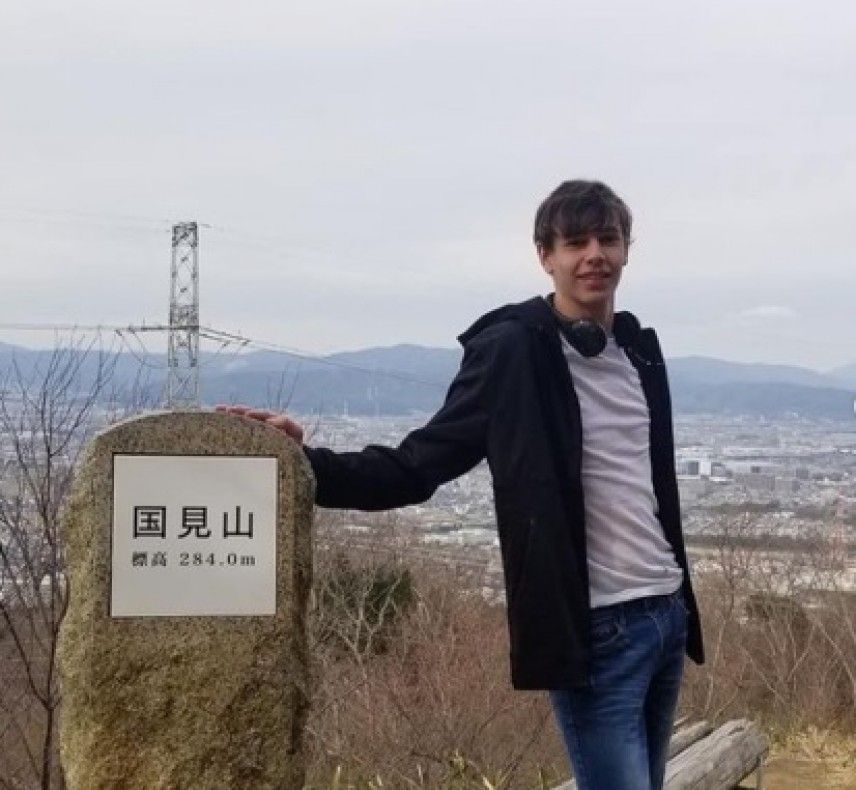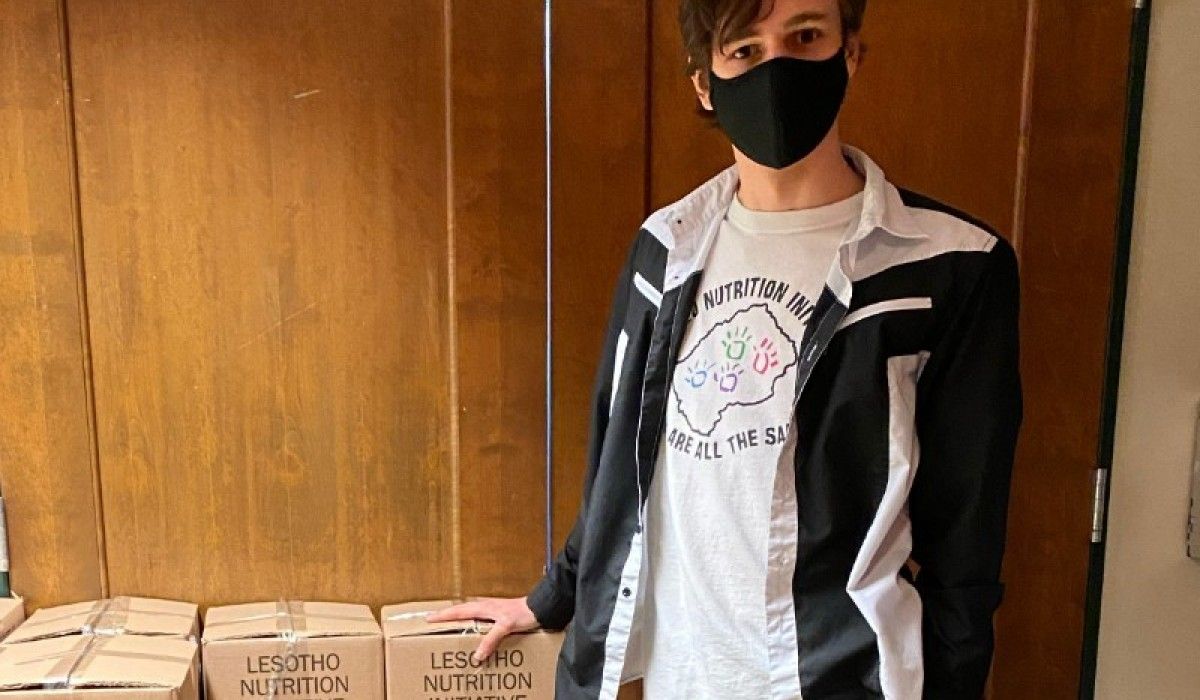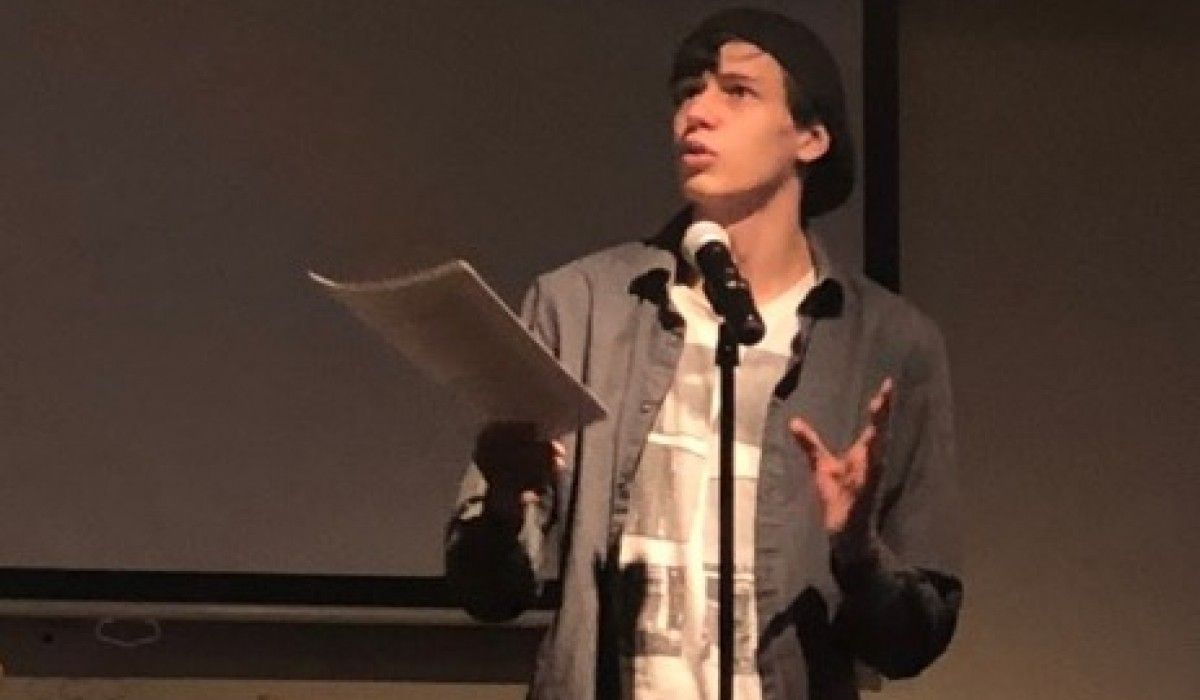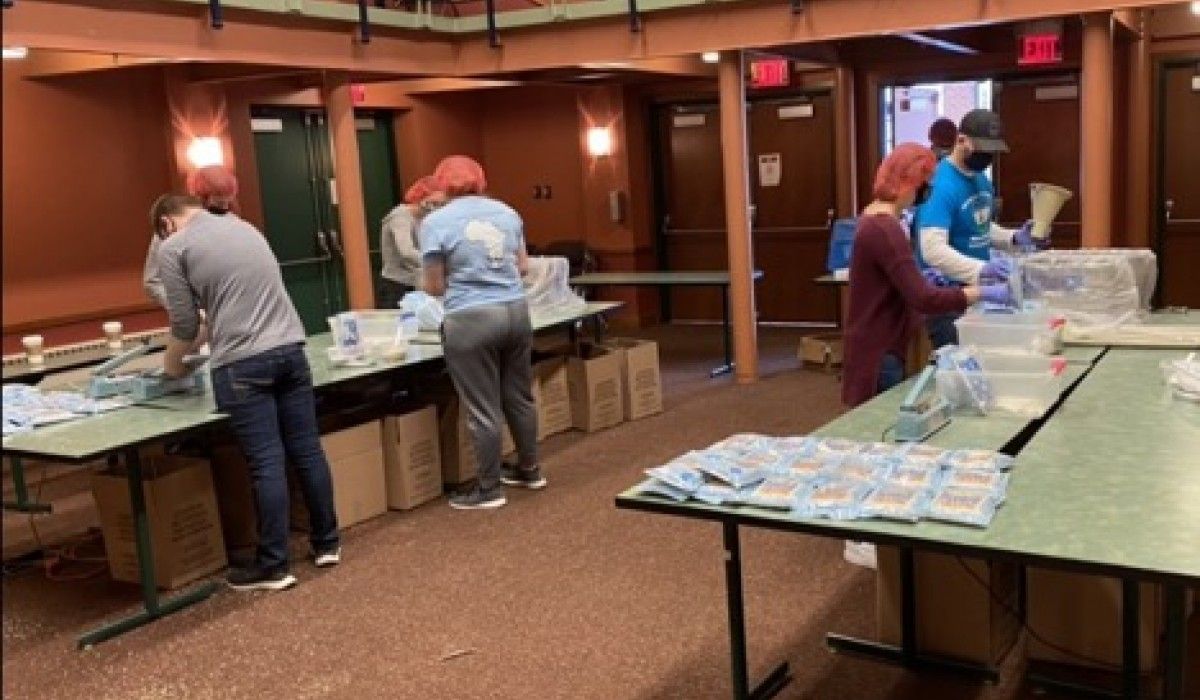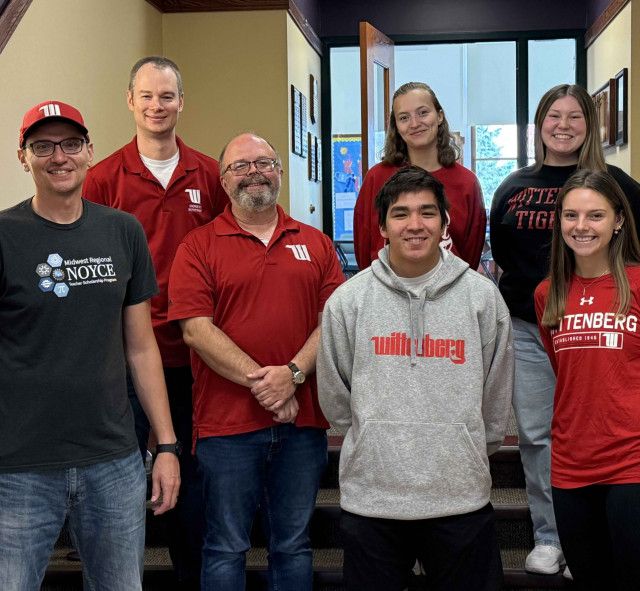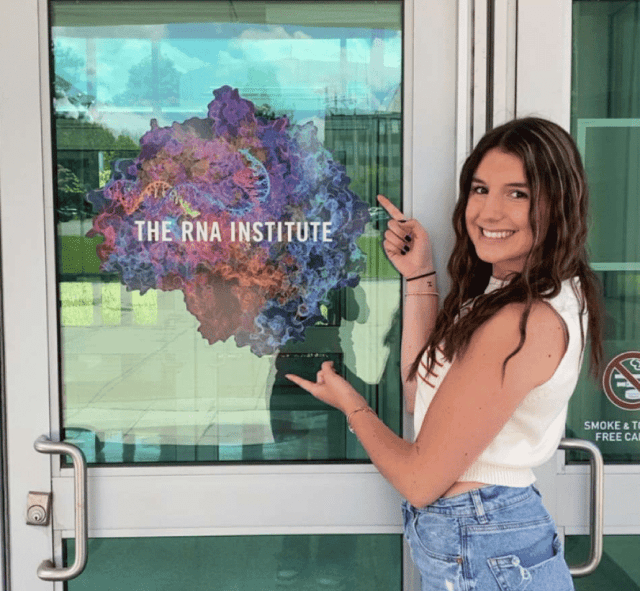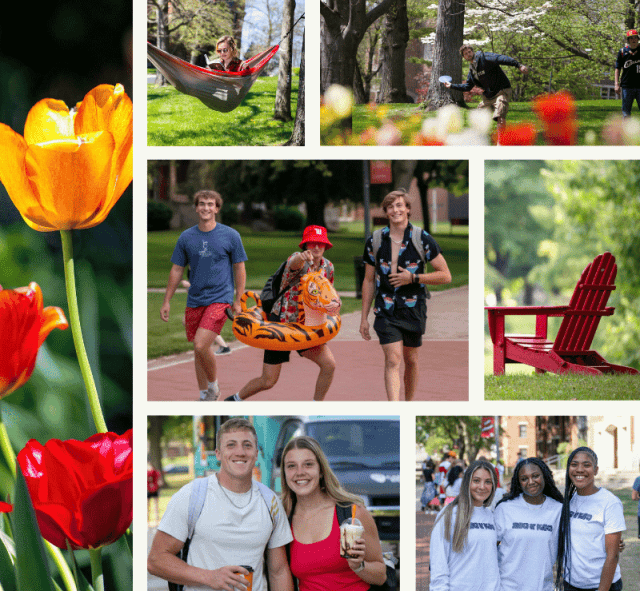Wittenberg’s intertwined and tight-knit community creates a lot of opportunities for students to work across various disciplines and extracurriculars that interest them. As a result, students are often able to find an array of niche interests that all synergize to create a unique path tailored to their own goals. My experience at Wittenberg offered me a close connection to the programs of my interest, and as a result, I’ve become deeply involved and passionate about the work I’m able to do.
My name is Jack Fobean, I am a senior with a double major in English and international studies and a minor in creative writing, but my experience at Wittenberg has reached beyond my academic programs and created meaningful, long-lasting impacts on who I will become. I have found opportunities to work closely with my professors, academic advisors, the Lesotho Nutrition Initiative (LNI), the Writing Center, and Wittenberg’s Office of International Education throughout my four years at Wittenberg.
Through my chosen international studies Peace Corps track, my classes have been focused on the study of global humanitarian development, intercultural exchange, and international relations while also working to prepare me for a particular role in the field. My work with the LNI has been closely linked to the goals of the major. LNI offers Wittenberg students the chance to contribute directly to the nonprofit’s humanitarian relief projects in Lesotho, Africa. At weekly organized events, volunteers pack meals to reverse the effects of malnutrition and stunted growth in children. LNI also seeks to educate high school students about the issues of malnutrition faced in Lesotho while organizing packing events at local Ohio schools. Directed by my professor and academic advisor, Dr. Scott Rosenberg, LNI lets students take active roles across the nonprofit organization and gain experience in facilitating NGO operations. Simultaneously, LNI cooperates with local Basotho groups to distribute these meals to communities that need them, creating developmental infrastructure on the ground in Lesotho. The organization has packed over 2.2 million total meals to send to Lesotho, with 500,000 meals being packed in 2020 despite reduced event capacity.
Dr. Rosenberg also directs a program at Wittenberg where international studies majors, LNI members, and other interested students can get scholarships to travel to Lesotho and work with local communities on sustainable development projects. In 2019, we worked across Lesotho to construct a home for an orphan-headed household and greenhouses at a community center for people with disabilities, as well as create supplemental teaching materials for local schools. LNI also uses the biannual Lesotho trip to promote intercultural exchange with partners in Lesotho and similar nonprofit organizations such as Friends of Lesotho, Touching Tiny Lives, and the Basotho-led nutritional development efforts of Lesotho’s Head of State and UN Special Ambassador King Letsie III.
To help tailor the international studies major to my specific goals, I was also able to work with Wittenberg’s Office of International Education to integrate my international studies coursework with the curriculum offered at Kansai Gaidai University in the Kansai region of Japan. As a result of Wittenberg’s partnership program with Kansai Gaidai, I was able to spend a semester studying international perspectives around foreign development while also taking focused classes on language studies, traditional martial arts, and Japanese philosophy. My time at Kansai Gaidai was spent immersed in the local culture at a place where I made lasting friends and contacts with perspectives far different from my own.
Through my work at the Wittenberg Writing Center, I’ve been able to find a unique way to unify my interests in writing studies and international affairs. Working with my English academic advisor and Associate Provost Michael Mattison, I held one-on-one sessions with students to improve writing skills for academic assignments. The Writing Center introduced me to the exploration of theoretical approaches to teaching practices across disciplines. In downtime at the center, I’ve also been able to research the pedagogical methods involved in creative writing. The experience of working one-on-one with student writers helped provide insight into how educational systems can be designed to cultivate intrinsic motivation and improved conceptualization abilities based on the individual process of each writer. I hope to apply these aspects of American educational theory to the curriculum of international language schools.
My interest in teaching language and writing in particular emerges from a deep passion for creative writing in all its forms. Wittenberg’s creative writing department has provided my most engaging classes, where the writers focus on the development of independent projects in genre-focused courses. The work I’ve done in my creative writing classes has been a springboard for me to start releasing my own creative nonfiction essays, fiction short stories, and poetry on my website. The English department, on the other hand, offered classes focused on introducing me to literary theory, pedagogical practices for teaching writing, and rhetorical skills useful across all creative genres within and beyond English. These classes culminate in senior theses, wherein I am pursuing in-depth research about the perception of movement and also taking on another long-term novel project.
As I near the end of my time as an undergraduate, I’ve become more proactive in ensuring I can pursue my passion long after I leave Wittenberg. Time previously devoted to class and studying has been replaced with my efforts to expand my portfolio of writing and prepare several of my pieces for publication to a wider audience. My creative writing efforts and the experience I’ve garnered in the Writing Center have provided me with a strong base of unique and personal teaching experience where I focused on implementing experimental teaching methods to augment student motivation, information retention, engagement, and application to external material. The intercultural experiences I’ve had with the international studies program have given me greater confidence in exploring and creating dialogue beyond the American cultural zeitgeist, and combined with my studies of writing and language, I’ve carved my education into a unique set of experiences and practices for the pursuit of better education on an international scale.
After graduating in spring of 2021, I plan to work as an international language teacher in Japan, integrating western progressivist and individual-focused teaching practices with the discipline and structure of Japanese classrooms – all while I work to expand my portfolio of essays, fiction, and poetry in preparation to apply for competitive MFA programs in creative writing. During the coming years when I live outside of the United States, I hope to work with more NGOs that promote global peace and sustainable development efforts. Through unique teaching experiences and by improving my own understanding of writing across genres, I’ll work toward the ultimate goal of teaching creative writing at an international university where I may study how we can influence conceptualization abilities in writers and artists through curriculum. In the meantime, though, I’ll just keep publishing poetry about the apocalypse.
Jack Fobean ‘21
Hometown and state: Stow, Ohio
Majors: English and International Studies
Minor: Creative Writing


